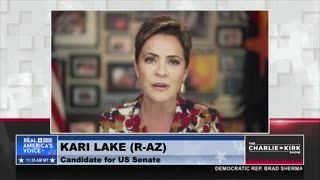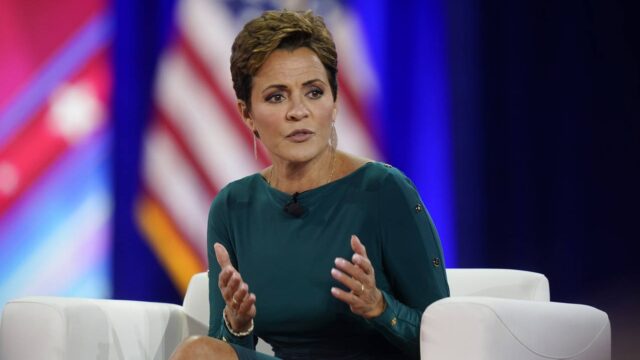Kari Lake’s Voice of America Role: A Storm in a Teacup or a Sign of Shifting Sands?
Okay, let’s talk about Kari Lake. Love her or hate her, she’s a name that sparks immediate reaction. And her recent involvement, or rather, potential involvement, with the Voice of America (VOA) has sent ripples – some would say tidal waves – through the political landscape. This isn’t just another political squabble; it’s a fascinating case study in how deeply partisan our current climate is, and how even the seemingly apolitical can become a battleground.

This article will delve into the controversy surrounding Lake’s potential role with VOA, examining the various perspectives, the underlying concerns, and what this all might mean for the future of both the organization and the broader political discourse. Get ready, because this is a story with more twists and turns than a rollercoaster at Six Flags.
The Genesis of the Controversy: What Sparked the Firestorm?
The initial reports were fairly straightforward: Kari Lake, the Arizona gubernatorial candidate who continues to claim (without evidence) that the 2020 election was stolen, was being considered for a position with the Voice of America. Now, for those unfamiliar, VOA is a US government-funded international media outlet. Its mission is to provide accurate and unbiased news to audiences around the world, a crucial element of American soft power and diplomacy.
The immediate reaction was, to put it mildly, explosive. On one side, supporters of Lake saw this as a recognition of her influence and a chance to bring a fresh perspective to international broadcasting. They argued that her outspokenness and strong opinions were exactly what was needed to counter what they perceived as biased reporting from other international news sources.

On the other hand, critics voiced serious concerns. The core argument revolved around Lake’s repeated dissemination of misinformation, particularly her persistent claims of election fraud. They argued that appointing someone with such a record to a position of journalistic responsibility would irreparably damage VOA’s credibility and compromise its mission of unbiased reporting. The fear was that Lake’s presence would alienate international audiences and undermine America’s standing on the world stage.
This wasn’t just a matter of differing political opinions; it touched upon the fundamental principles of journalistic integrity and the importance of factual accuracy in international broadcasting.
Dissecting the Arguments: A Deeper Dive into the Debate
Let’s break down the key arguments from both sides:
Arguments in Favor of Lake’s Potential Role:
- Representation of a Significant Portion of the Electorate: Lake’s supporters argue that she represents a large segment of the American population who feel unheard and misrepresented by mainstream media. Her appointment, they believe, would offer a platform for these voices.
- Challenging the Status Quo: Some believe that VOA needs a shake-up, arguing that its current approach is too cautious and fails to effectively counter narratives from foreign governments and media outlets. Lake’s outspoken nature, they claim, could be an asset in this regard.
- Promoting Diverse Perspectives: While seemingly contradictory to the previous point, some argue that including a figure like Lake promotes diversity of opinion, even if that opinion is controversial. The idea is to present a range of viewpoints, allowing audiences to form their own conclusions.


Arguments Against Lake’s Potential Role:
- Undermining VOA’s Credibility: This is perhaps the most significant concern. Lake’s history of spreading misinformation directly contradicts VOA’s commitment to factual accuracy. Her presence could erode trust in the organization, both domestically and internationally.
- Potential for Bias and Propaganda: Critics fear that Lake’s appointment would transform VOA into a mouthpiece for a specific political ideology, undermining its role as an independent news source.
- International Reputational Damage: Appointing someone known for spreading misinformation could damage America’s reputation abroad, making it harder to build trust and alliances with other countries. This is especially crucial in a world increasingly susceptible to disinformation campaigns.

The Broader Context: Misinformation and the Media Landscape
The Lake-VOA controversy isn’t happening in a vacuum. It’s playing out against the backdrop of a global struggle against misinformation and the erosion of trust in traditional media. Social media platforms have become breeding grounds for false narratives, and the lines between news and opinion are increasingly blurred.
This makes the role of organizations like VOA even more crucial. They are tasked with providing reliable information to audiences who are bombarded with a constant stream of competing narratives. Appointing someone with a history of spreading misinformation would be a direct contradiction of this vital mission.